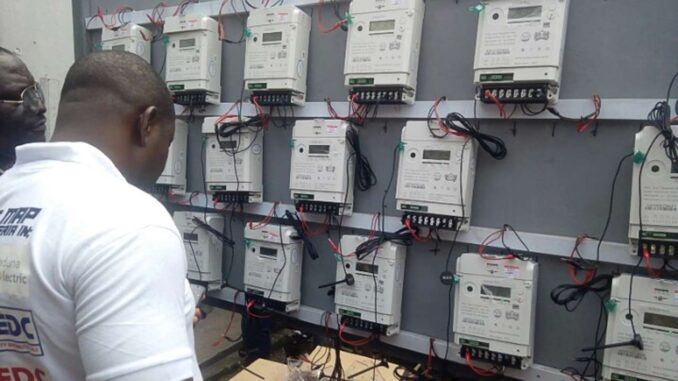
The objectives of the Federal Government’s National Mass Metering Programme (NMPP) are impeccable, according to the promoters of the policy. In summary, the arrangement is meant to comply with international best practice, eliminate an obnoxious billing system that has constituted a wedge between service providers and customers, improve power supply and boost employment. These are core issues of governance plaguing the country for years. It will be unfortunate if government, through sloppy implementation, misses the opportunity presented by the new scheme.
Although government gave a general impression that provision of the meters will be free, the reality may be different, going by clarification being given by some of the Electricity Distribution Companies (DISCOs). One of them, Ikeja Electrics (IE) explained, for instance, that: “Beneficiaries of the programme which will cut across all locations in IE’s network will not be required to pay upfront for the installation of meters. Rather, the modalities of cost-recovery for the meters will be clearly defined and communicated to the beneficiaries.”
Yet, the meters being basically the property of DISCOs, ought to be free for consumers, apart from payment of nominal fees for administrative or installation purposes. Having been forced to intervene financially in an issue that is supposed to be driven by private entrepreneurs, government must, in the overall interest of the people, monitor the implementation of the metering programme and ensure that consumers are not unduly exploited.
The practice of estimated billings by DISCOs to electricity subscribers has been fraught with corruption, exploitation and outright suppression of hapless consumers. As a consequence, the system has generated a lot of acrimony and festered poor performance of the power companies who are sure to make their money irrespective of failure to supply the power product. Government should use the NMMP as an entry point towards eliminating the obnoxious practice for good. Nothing should be allowed to disrupt its implementation.
There has been widespread dissatisfaction among many Nigerians that those who managed to acquire the meters paid through their nose for them. However, amidst encouraging reports that the distribution of the electricity meters had commenced with simultaneous inauguration of the scheme in Kano, Kaduna, Eko and Ikeja Discos franchise areas, what happens to the rest of the country and how soon would they be equally metered after this supposedly pilot phase? The NMMP is to roll out six million meters for all connection points on grid without meters over the next 18 to 24 months, estimated to impact 30 million consumers nationwide. But this is like a drop in the ocean, compared to the number of meters needed to go round Nigerians.
The primary objective of the NMMP is to increase the metering rate of the country and close the gap of unmetered customers. It is also expected to assist in reducing collection losses, while at the same time increasing financial flows to achieve a 100 per cent market remittance obligation of the DISCOs. Ultimately, it is aimed at putting an end to the menace of estimated billing of consumers, which President Muhammadu Buhari promised to eradicate before the end of his administration and create jobs.
Interestingly, the Central Bank of Nigeria (CBN) has reportedly approved guidelines for funding the mass metering programme, which entails that all meters under the scheme will be locally produced, thereby creating thousands of manufacturing jobs through the lead manufacturers. Government should encourage the stakeholders to provide reliable information and data on how many households are actually without prepaid meters. What percentage would be covered and how many would be left out? Diligence is required to ensure that no consumer is left out; and the exercise ought to be continuous, to take care of new requirements.
There is also need to guard against extorting consumers by those implementing the programme, who may see this as an opportunity to make money. Recently, a bill seeking to criminalise estimated billing by the DISCOs was presented before the House of Representatives. It is a step in the right direction, being a proposed legislation aimed at alleviating the burden on electricity consumers, more especially, in a country where the plight of the suffering masses is hardly taken into account by the authorities. The lawmakers should discountenance predictable opposition to the bill and pass it as law in the interest of equity, fairness and justice.
The culture of estimated billing, which amounts to blatant official corruption, has, unfortunately, been tolerated for too long. It is time to end the travesty. Any reasonable action, legislation or mass metering aimed at resolving the intractable problem is welcome. Production of meters should be liberalised to accommodate many companies, and to enable government maximise its economic potential to the country.
END

Be the first to comment